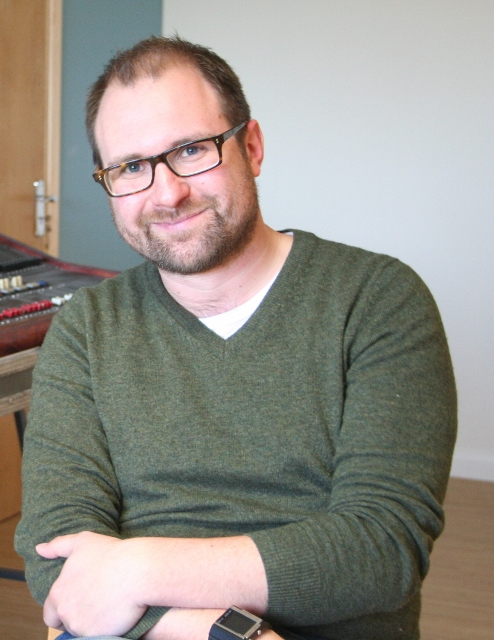There are so many different ways to get across a point in the classroom – or stage play – and sound is increasingly one way to do it, thanks to new technology and evidence in how it can help improve attention and academic results.
Of course, a lot is down to your excellent teaching, but any help is always welcome… ‘The use of technology to enhance listening performance ultimately allows children to learn more efficiently,’ says David Nibbs, the managing director of School Sound and Vision (a brand he added to his original company Real Sound and Vision).
‘Sometimes it’s a case of simply ensuring students can actually hear their teachers better. They’d do better in school and ultimately be more successful,’ he adds.
Simon Beesley, the product manager for Sennheiser UK, which has been creating cutting edge audio products since 1945, agrees. He says: ‘The use of audio is well established in education and has been used for decades.
‘From the humble C60 audio cassettes of the early 1970s, to now accompanying nearly all online and offline learning, audio has a long history as a teaching and learning aid. Audio as a format has great breadth and depth, which means there is great potential for its use in education.
‘Good quality audio demonstrates a capacity to facilitate authentic engagement, allowing students to connect in various ways with each other and to the outside world, both as listeners and publishers. Audio communication is a primary learning tool and if this communication is not clear the message or principle learning may be lost.’ The same can be said when producing a school play – creative use of sound can enhance your story-telling – through live music, recorded tunes or sound effects. Dave Swallow has over the last 15 years, honed his skills as a front of house audio engineer for UK artists such as the late Amy Winehouse, La Roux, Billy Ocean and Underworld, among others. Last year Dave was awarded the Audio Pro Industry Excellence Award of Live Sound Engineer of the Year. He is also module leader on the Sound Module FdA Live Events Production (validated by The University of Bolton) which is an all-round introduction to working in live events, from concerts, theatre and fashion shows to corporate events and festivals.
It might be obvious to describe the importance of sound thus: ‘Without sound the production would be very quiet, unless it’s a mime show when it needs to be quiet,’ but sometimes we all need this back to basics approach.
Adding sound to an already full-on production can be another headache to hard-pressed teacher-directors. But it need not be difficult as Dave explains: ‘There are very different types of sound production depending on the type of show. For example, a theatre show requires a sound designer to create the sonic landscape for the performance to immerse the audience in without even knowing.
‘Wherever there is a speaker or a microphone, or both, there is a sound person. Sound is always all around us and we are very aware when something doesn’t sound right. Our job as sound engineers isn’t really to enhance sound but to make ‘amplified sound’ sound natural and pleasing. This can be achieved using microphone techniques, EQ and PA system placement.’
So what kit do you need?
Simon from Sennheiser UK says: ‘Audio systems can range from cost-effective portable systems to large-scale permanently installed systems, so it’s important to speak to your local installer to find out what the best option is for you. We have long been offering quality audio systems to all manner of industries so we understand the importance of good quality audio.’
And the dreaded C word? (That’s ‘cost’!) Well, David at School Sound and Vision has come up with a way to help schools, academies and colleges manage the cost with its Funding 4 Education scheme, which allows organisations to spread the cost.
The company specialises in portable PA systems and will come to you to look at what you need for use, budget and expectations. Sample prices (each would depend on the system you purchase) for a complete school hall performance sound system, installed and ready to go, could cost around £39 a week; or a full sound and stage lighting rig could be £73 a week. This price does not include VAT and is for a three year rental term with the option to buy or upgrade the system at the end of the agreement. All good stuff – and you could also sign up to its AV Activate system which offers after-care, technical support and training, on any kit you might have. So all good inspiration for budding engineers, but have they considered a career in the sound industry?
Dave from the Backstage Academy says a career would suit a self-starter. ‘People who would be best to pursue a career in audio would be someone who has self-motivation. A love of physics with creative flair and a technical mind, tolerant and willing to be part of a team but also have the ability to take instruction and control when the need arises. ‘Within the audio world there are many opportunities in a huge range of fields. A student could become a live sound engineer for a variety of artistes and bands or venture into location recording, traversing the globe recording sounds that no one else has recorded before. There are opportunities in PA installation for pubs and clubs or in the physical design of sound systems.’ So what about training? Well Dave’s course covers everything from what sound is to principles of sound systems; and from sound equipment to recording the performance.
So there clearly is more to sound than meets the errr… ahem… ear. But Dave’s advice comes with a health warning: ‘You need a passion for music but be aware that listening to music everyday can destroy any form of love you had for it.’




